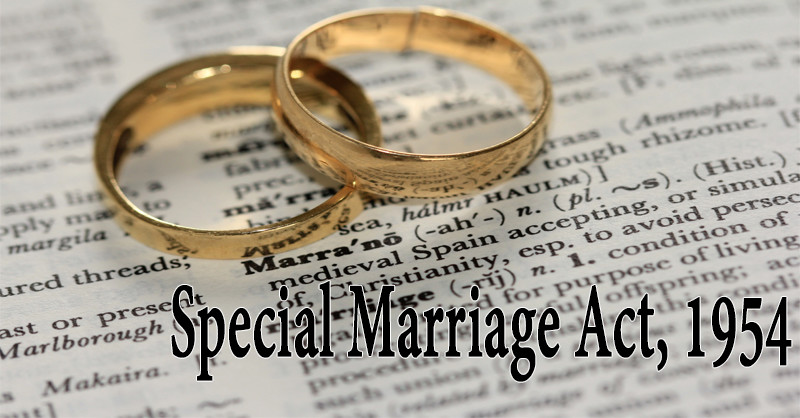INTRODUCTION
Welcome to the official blog of the Law Offices of Kr. Vivek Tanwar Advocate and Associates, where we are dedicated to providing litigation support services for matters related to marriage. In today’s blog post, we aim to shed light on the prevailing issues surrounding marriage, the legal framework in place for their protection, and the steps we can take as a society to combat these acts. Join us as we explore this critical subject and empower you with the knowledge to protect your rights and safety.
WHAT IS SPECIAL MARRIAGE ACT, 1954?
The Special Marriage Act is an Indian legislation that provides a legal framework for interfaith or inter-caste marriages. It was enacted in 1954 with the goal of facilitating marriages between individuals belonging to different religions, castes, or communities. The act allows couples to marry without regard to their diverse backgrounds and ensures that their union is legally recognized. The Special Marriage Act aims to promote the principles of secularism, social integration, and individual freedom by enabling individuals to marry outside their religion or caste.
PROCEDURE FOR FILING DIVORCE UNDER THE SPECIAL MARRIAGE ACT, 1954
To file for divorce under the Special Marriage Act in India, you need to follow a specific procedure.
- Grounds for Divorce: Determine the grounds on which you are seeking a divorce. The Special Marriage Act allows divorce on various grounds, including adultery, cruelty, desertion, conversion to another religion, unsoundness of mind, and incurable mental disorder.
- Consultation with a Lawyer: Seek legal advice from a family lawyer who specializes in divorce cases. They will guide you through the entire process and help you understand the legal aspects.
- Draft the Petition: Prepare a divorce petition stating the facts and grounds for divorce. Include details such as the names of both spouses, their marriage date, the reasons for seeking a divorce, and any other relevant information.
- File the Petition: Take the drafted petition along with copies (usually three) and file it in the district family court where you or your spouse resides or where the marriage took place. Pay the required filing fees and submit the petition to the court clerk.
- Serving Notice: After filing the petition, the court will issue a summons to the other spouse, informing them about the divorce proceedings. The summons needs to be served to the other spouse by a process server or through a registered post with acknowledgement due.
- Response and Counselling: Once the summons is served, the other spouse has the right to respond to the divorce petition. They may file a written statement in response to the allegations made in the petition. The court may also provide an opportunity for reconciliation and refer the couple to counselling if necessary.
- Evidence and Proceedings: Both parties will have the opportunity to present their evidence and witnesses to support their case during the court proceedings. The court will examine the evidence presented and consider the legal provisions under the Special Marriage Act while making a decision.
- Decree of Divorce: If the court is satisfied with the evidence and grounds for divorce, it may grant a decree of divorce. The court will issue a written order stating the dissolution of marriage, custody of children (if applicable), alimony, and any other relevant terms and conditions.
- Appeal: If either party is dissatisfied with the court’s decision, they have the right to appeal against the judgment in a higher court within the stipulated time period.
CONCLUSION
The procedure and requirements may vary based on the specific jurisdiction and the facts of the case. It’s essential to consult with a qualified attorney who can guide you through the divorce process under the Special Marriage Act in your particular region. It’s essential to note that the divorce process may vary depending on the specific circumstances and jurisdiction. Consulting with a lawyer will provide you with precise guidance based on your situation and local laws.
We are a law firm in the name and style of Law Offices of Kr. Vivek Tanwar Advocate and Associates at Gurugram and Rewari. We are providing litigation support services for matters related to Special Marriage Act,1954. We have a website on which we publish blogs informing the litigants about the said laws. Draft a blog which can be published on our website…..
Written by: Adv. Priyanka Goel (D/945/2020) .

